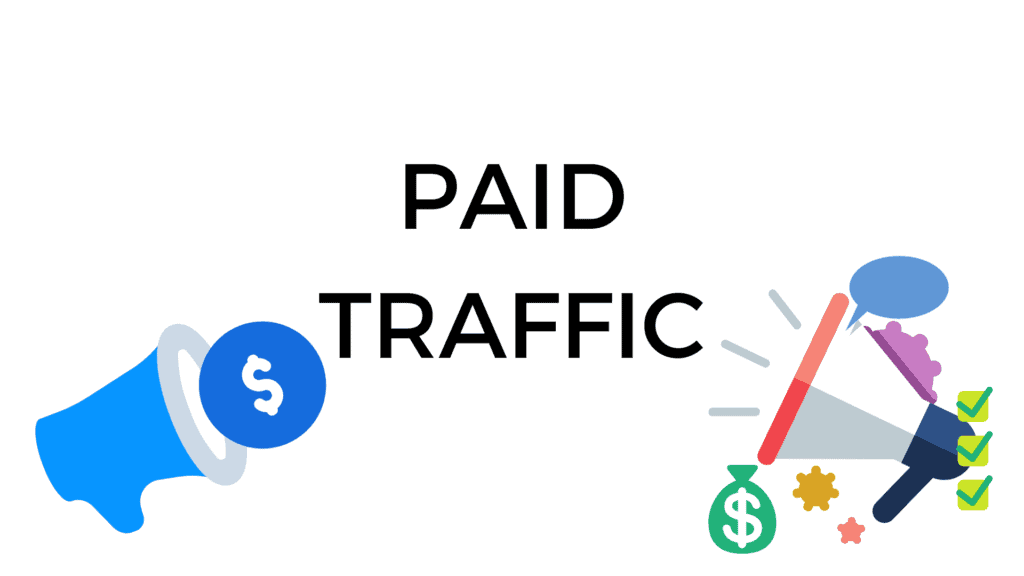If you're wondering how to start a coaching business online, you're not alone.
More than 50,000 new would-be coaches start businesses each year – most with high hopes and big dreams. Unfortunately, having big dreams alone isn't the recipe for success when it comes to building a successful coaching business and many are out of business in their first 3 years.
But never fear… we've created this free guide to ensure your new coaching business succeeds!
- How to start a Coaching Business: Is Starting a Coaching Business A Good Career Move?
- How To Start A Coaching Business
- Step 1: What are you seriously passionate about helping people with?
- How to Start a Coaching Business Step 2: Identify the audience who needs your coaching
- Step 3: Create your coaching offer
- 4. Decide on your marketing software stack
- 5. Decide on your traffic strategy
- 6. Get Your Marketing Assets in Place
- 7. Get your first paying clients
- 8. Scale Your Coaching Business to Match Your Goals
- Get Business Coaching
- The hidden cost of building a coaching business online
- Start a Coaching Business: Hidden Costs
- Frequently Asked Questions
How to start a Coaching Business:
Is Starting a Coaching Business A Good Career Move?

While I'd never say building a business is the path of least resistance, I'm guessing you're not a 9 to 5er (or at least you desperately want not to be). This means having a solid plan in place to grow your coaching business is absolutely crucial. You probably have lots of questions.
In this article, I'm going to give you the blueprint to give you the financial results you want, while serving your beloved audience and sharing your passion and gifts as a coach. So here goes…
How To Start A Coaching Business
So, with that in mind, I'm going to break it down into bite-sized, actionable chunks to make sure you start a coaching business online that will exceed your expectations and have your friends wondering how the heck you did it so dang fast!
Step 1: What are you seriously passionate about helping people with?

I don't care what any of the naysayers tell you, if you build a coaching business around something you're not excited about you'll burn out of the coaching industry faster than a speeding ticket.
How to Start a Coaching Business Step 2:
Identify the audience who needs your coaching

In the coaching industry, you'll sometimes hear this referred to as defining your ideal client avatar. I can't stress how important this step is… if you go around saying you're a life coach who just wants to help anyone and everyone live their best life – you're going to become another casualty of the industry.
The more clear you can be about who you want to help and how specifically you want to help them the more attractive you'll be to potential clients. Do you want to help post-menopausal women get their mojo back? Help divorced women with young kids get back into the dating scene? Coach coaches how to make money coaching? (just kidding, there are too many of those already… and also, get off my lawn 😅)
Life Coach? Business Coach? Health Coach? .. It's time to get specific
If you want to start a coaching business, I recommend you get super specific when it comes to defining your ideal coaching client by asking yourself the following questions.
Who is your ideal coaching client, really? You need to dig in here, a lot deeper than you think. It goes beyond just the staple demographics – age, sex, location, job, and income – you need to build a persona around who this person is to truly understand what they need. What's happening in their life right now that's causing them discomfort? How do they feel about their job, their family, their finances, themselves?
BONUS: Many coaches get into the profession because they want to help others who are like themselves. If that's you, this exercise should be easy!
- What is it about your coaching service that is going to help this person achieve their goals?
- Will it alleviate the physical or emotional pain they're experiencing, help them earn more money, better their relationships?
Don't wait to start building authority with these people… now that you know who you want to work with, get yourself into the places they hang out online. Is your target audience active in Facebook groups?
If so, join those groups and start answering questions. Notice I didn't say join the group and spam links to your website or write thinly-veiled promo posts designed to get people DMing you (believe me, in a well-run group the moderators will spot your BS a mile away and you'll be outta there).
The best way to create authority right when you start a coaching business is to listen – just the way a good coach always does – and give advice so good people feel like they should've paid for it. No joke – when you're just getting started, give away the farm even if it feels a little painful. It's the fastest way to build a following and get clients reaching out to you for coaching organically.
I can't stress this enough – no matter how new you are, what kind of coaching skills you have, or how deeply you might be feeling imposter syndrome rearing its ugly head – don't wait for anyone to tell you you're the expert. You are whoever you say you are.
Just a quick note about the business name.
Please when you're just getting started and are looking for clients, and want to attract your ideal person, don't go with a witty business name no one understands.

Step 3: Create your coaching offer
When starting a coaching business, so many coaches fail simply because they don't have a good offer.
And honestly, it's not their fault – for years gurus (and wannabe gurus) have parroted the advice “just get 10 clients a month to pay you $1000 per month and there's your 6-figure coaching business online.” Oh lordy, let me tell you right now, that's terrible advice.

First, have you ever worked with 10 coaching clients in one month? I have, and you want to know what? It's absolutely GRUELING. Not only do your sessions inevitably go long (you know you're a giver, that's why you're a coach), but you're also an empath – which means no matter the type of coaching business you build (health coach, a fertility coach, baby sleep coach, etc) you're going to take on and be affected by the (often turbulent) emotional state of your clients.
On top of that, a month-to-month business model rarely works out financially for the coach. Most issues people come to you with (think weight loss, mindset shifts etc) take a minimum of 90 days to start to see a shift. When they're coming up on their monthly re-billing date and haven't had a complete transformation, it's too easy to make excuses and quit. Leaving your beloved client without the promised result and you without the promised 6-figure business.
Ok so what I'm saying is most entrepreneurs starting a coaching business overlook the importance of having a solid offer and a marketing plan- if you're serious about building a 6-figure coaching business online, you want to have a crystal clear vision of the transformation you provide, and straightforward pricing that not only serves your client but makes the actually delivery of the coaching profitable – dare I say, exciting – for you.
Let's unpack that a little more, since coaches almost always price their services too low, and don't factor in important costs of doing business. Because let's be honest, as much as we all love what we do, most of us need to make a living doing it. Amiright?
How much money do you need to earn this year?

If up till now you've been an employee, and are looking for how to start a coaching business, the tendency is to choose a number that replaces your current income. But no my friend, it has to be higher than that. To be a full-time coach you need to factor in things your job used to provide, like health insurance, paid vacation time, and 401k retirement contributions.
On top of that, you now have the added expense of running a business online. At a minimum, you'll want to allocate $150 per month to client relationship management (CRM) and marketing software (I'll have recommendations for that later, but trust me, running your coaching business online efficiently requires investment – cutting corners not advised – make sure you pay for an upgraded internet connection), a few thousand for professional development (think courses and conferences), as well as a healthy marketing budget to reliably attract new clients.
So whatever number popped into your head first, add $20k – you'll thank me later.
Now that you have your number, let's break it down by month…
Let's go with a well-rounded $100,000 per year as a hypothetical.
That breaks down to $8,333 per month.
Now you've got to start thinking about what it's going to take to get there. And pricing your program is going to have a few factors, the biggest ones being the cost to acquire a new coaching client and your target market and what they're willing to pay.
Let's dig into each of those factors.
What are your clients willing to pay for your coaching solution?

People have problems that needs solving. They have pain points and discomfort they're willing to pay to fix. This is true for any service… think of a chiropractor, a massage therapist, or a marriage counselor.
Sure some people might just love a good massage, enjoy the snap, crackle, pop! of a good spinal adjustment, or lively chitchat with a stranger about how great their marriage is.
But check in with any service provider and they'll tell you what you already intuitively know… the vast majority of people paying for these services are in pain. They look to professionals for proven solutions to solve their problems.
And that's what your coaching clients are paying you for… to help them solve their problems.
Back to pricing…
Look at the going rates for chiropractors – between $50 to $100 for an adjustment is pretty standard. If you randomly decided to charge $500 per adjustment you probably wouldn't get much business. Unless you're a well-known celebrity chiro, it's just not gonna work.
To hit your $100k/year goal as a chiropractor you need to get creative with your pricing – build in continuity (recurring billing) and incentivize clients to sign up for long-term packages. Find a way to differentiate yourself with additional therapies. And the same might be true for your coaching niche.
Back to our desired income of $8,333 per month (which gives you a 6-figure coaching business). In some coaching niches, when you reach certain levels, you could charge a single client that much.
In other markets, you might need 9 people paying you $1000 a month to achieve that goal.
And in some coaching niches, you might need 17 clients paying you $500 per month.
Before pricing your offer, you'll want to do some research about what coaches in your niche are charging – it doesn't mean you will charge more (or less), but it will be a good indicator of what your market will bear.
Your coaching package comes down to how much time you want to put into your service delivery and how much your client base is willing to pay for service.
4. Decide on your marketing software stack

This is a REALLY important decision and making the wrong one early on is going to cost you a ton of time and money. If you're not techy, the best advice I can share is to find a trusted advisor who is a resource and can help you get this set up quickly with minimal headache. Most business owners make the mistake of trying to do everything themselves and end up
To grow a successful business online, your coaching practice needs at least some automation. Otherwise you're going to be drowning in unnecessary administrative tasks.
At the very least you're going the following:
- a website
- a way to generate email and text message leads
- an online scheduling tool
- a way to accept online payments
- a way to deliver your training
- a way to send email marketing messages.
I know that probably seems like a daunting list, but the great news is all of these can be found in a single marketing platform.
5. Decide on your traffic strategy
Way too many coaches leave this until the end and are totally confused when they have no clients. But the truth is, if you're the best-kept secret in your coaching niche, no one's going to hire you.
Traffic – meaning people actually seeing your website – can be broken down into two categories: paid and organic.
Paid Advertising

Paid traffic is awesome because you can turn traffic on and off quickly. Depending on your budget you can literally click a button and have hundreds of visitors to your site.
If you're going with paid advertising, be prepared to spend a bit of money on testing as it can take a few tries to get your coaching offer matched with the right audience.
You should also be aware that the cost of online advertising is going up as it becomes more competitive. If you're not planning to really dig in and spend time learning the ad platforms it can be a very costly experience, so I'd definitely recommend working with an expert to help you with your first campaigns.
Organic Traffic

Organic traffic takes a bit more time and patience, but there is no better way for your prospects to find out about who you are and what you do than through your content via search engines (where they are actually looking for exactly what you provide, and on social media sites like Facebook and Twitter.
There is a misconception that organic traffic is free… it's not free, it costs you either time (if you're doing it yourself) or you have to pay someone else to do it (post to social media, write blog posts etc).
It's just that it's a longer-term strategy – in the case of search engine optimization, we're talking about one-time work for long-term traffic, so that's a major plus over paid advertising. When you stop your ads your traffic stops instantly.
***In the long term, organic traffic is the best way to go because it tends to have better engagement and lasts a lot longer.
So, in a perfect world, you'd do both… short-term, run ads, and build up an email list of people interested in your topic to promote your coaching business
And as a long-term strategy, build a website that is responsive and easy for searchers who are looking for you on Google, Bing, Yahoo! or other search engines.
6. Get Your Marketing Assets in Place
You need a website that includes a services page, and a contact page, but more importantly, you need a sales funnel. The most profitable asset you can build is an email list of prospects.

- Lead magnet – a free item (guide, checklist, video etc) that would be of value to your audience
- Lead capture page – a page that describes the value of this item and allows your ideal client to get it free by sharing their email address
- Email series – a series of email messages that give your email subscribers more value and the opportunity to work with (grab our templates here)
- Online calendar – an online tool that allows potential clients to book appointments with you (and follows up to ensure they actually show up for the appointment!)
- Checkout page – a page where new clients can actually pay for your program or service.
- Online contracts – a way to have your clients sign your client agreements that is legally binding and protects both parties.
- The best way to accomplish this if you aren't techy is to get an all-in-one marketing platform. It makes sense to have all of your landing pages, leads, calendar, and email marketing under one roof (rather than logging into a bunch of platforms and trying to make them talk to each other).
This is the system we use to do all of these things for Marrs Marketing… and after more than 15+ years working with software I can tell you for sure this is the best option currently on the market for coaches
7. Get your first paying clients
This part is exciting and can begin to snowball really fast if you've done the first steps correctly, and your dream coaching business is getting closer to becoming a reality!

The most important thing you can do here is to create an amazing user experience.
Think about the client journey…
This person has probably just made a substantial financial commitment to start working with you. How do you want them to feel?
Excited? Hopeful? Supported?
Yes, all of these things.
Unfortunately, most coaches don't have a great system for client onboarding, which can lead to doubt and buyer's remorse.
Instead make sure your onboarding process takes your new client by the hand right from the minute they sign up.
Here are a few things you'll want to have happen automatically:
- Automatically send their contract or client agreement and have them digitally sign (to cover your legal butt)
- Give access to your training (or a getting started/welcome training)
- Give access to your Facebook group or Slack support channel
- Follow up at least once a week for the first week of your program
- Request a testimonial or case study (after a few weeks when they're getting great results of course)
Of course you can just do these things manually, but once you start bringing on multiple clients it's easy for steps to get missed.
Making it happen automatically is easier than you probably think anyway… this is the software I use 🙂
NOTE: Don't skimp on asking for testimonials and case studies. Make sure you collect success stories as you go along. When evaluating various coaching businesses, your clients will love seeing other people in their situation who you've helped.
8. Scale Your Coaching Business to Match Your Goals
Now that you've built the plan to build a successful coaching business online, you might be wondering what’s next for your coaching business.

After all, we’re entrepreneurs and always looking to grow! There are three ways to scale your business and get new clients.
-The first way to scale is by doubling down on what's working. This means you can continue to work with people in the niche that your business focuses on, or simply clients who are interested in this area of focus. You might also explore other niches and start marketing to those audiences as well.
The second way is through automation… marketing automation specifically.
– For example, you could set up a marketing automation software to take care of your email list and create campaigns for the people on it. This can be done through the use of automated email and text messages.
Once you have your systems dialed in you can scale up even faster by hiring other people to help
Get Business Coaching

I know it might sound crazy, but every great coach has a coach. You'll want to look for someone who knows your niche and tutorial Steps:
-Find a coach who has proven results and coaching experience (and business experience!)
-Research the type of coaching you want to do and find out what that looks like in your niche.
Need more guidance? Book a free call and let us help you create a plan of action!
The hidden cost of building a coaching business online

Building a business on a shoestring budget, while possible, isn't the fastest way to hit your goals.
Depending on your business structure, your coaching profession, there are going to be certain business expenses you can't (and don't want to) avoid.
First, you need to pay for software.
Free website builders and junky email marketing tools aren't gonna cut it. A good all in one system will cost you between $150 and $497 depending on the features you need. For example, the one I use is $297/month. (your software is one of the biggest assets of your business, so don't skimp here!)
Second, you have to pay for marketing
Sure, as a business owner, you can post up a storm in Facebook groups but let's be real – you're either paying with your time, or with your hard-earned money. Nothing in business is free and anyone who tells you differently is probably trying to sell you something.
Let's say you want to launch quickly – if your coaching program is over $2000, you probably need a phone call to sell it, which means we need to get you appointments (discovery calls) with prospective coaching clients.
Using the business coaching industry as an example – it can cost as much as $1000 in ad spend to get a new client ($200 per strategy call appointment with a closing rate of 20%). So if you bring on a client for $1000 a month and they quit after 30 days, you're putting in the work of coaching but just breaking even.
Start a Coaching Business: Hidden Costs
These are costs most coaches won't tell you about, but all businesses have advertising costs. So it's crucial to factor in your hard costs when pricing your services. If you don't, it will be very hard to compete and stay in the game.
Now, let's say you're a health coach, working in an industry that's saturated with low-cost coaches who just got their certification from the Institute for Integrative Nutrition (IIN), and are chomping at the bit to get new clients, no matter how little they're being paid.
While it's tempting to take the advice of “raise your prices,” it's not always feasible if it takes you too far outside the industry norm, especially when you're just getting started and don't have a proven track record, existing clients or the life experience to back it up.
Third, you're going to have to pay for help at some point.
None of us knows how to do everything ourselves and it's foolish to try to master everything your business needs to thrive.
Suck at marketing? Hire a marketer or marketing agency.
Not great at copywriting? Hire a blog or email writer. Or use marketing templates.
Web design not your thing? Hire a designer or get a proven system that's already done for you.
Long story short – businesses aren't run in vacuums and coaching businesses are no different. Take advantage of pros to help you grow even faster.
Starting a coaching business is a great entrepreneurial venture – armed with this list you should be well equipped for success!
Frequently Asked Questions
How much money do business coaches make?
Answer:
A “Business Coach” can do with the most as an entrepreneur, or the least as a consultant – for instance, it's entirely possible that a well-known celebrity might choose to employ their own personal business coach. It's also possible that somebody looking to start their own consulting firm could have one on staff. The answer really depends on how you define and market yourself. For example, if you're going into the self-help/motivation field of things then your pay scale will be much higher than someone who is just providing sales/marketing advice. If you are relying on other people for knowledge and access to niche markets in which you advise… then your pay scale will need to reflect this fact. Hence why many
How much should I charge for coaching?
Answer:
The amount you charge for coaching depends on a few factors. The most important question you should ask is “What will this person get out of the coaching?” and then build a package around that clients' needs(e.g., number of sessions, group or individual, etc.).
Next, there's your background and area of expertise/interests. Is it something that people are generally willing to pay money for? There's also whether people will pay upfront or if payment is contingent on successful results – so research things such as quality, credibility, longevity, etc before deciding what package would be best.
Finally, there's setting a fee scale tied to different income levels in the community you're focusing on i.e., $100 per hour for anyone earning less than $2000 per month.
What do business coaches offer?
Answer:
“Business coaching” is an umbrella term for any professional services provider who's on your team. Almost anything you can think of goes into a business coach's skill set: executive coach, marketing consultant, strategists and planners, branding expert, a market researcher. A good business coach will be able to help you assess what gaps the team has in their skillset so that they may best serve the client. In short: they provide the foundation necessary for an entrepreneur's success by partnering deeply with one (or multiple) clients at a time to identify goals and map out strategies to achieve them – then providing intensive support to their clients along the way.
Do I need a business license to be a life coach?
Answer: No and Yes.
It depends which state you're in, but for the most part no, you don't need a license. It's often just required that you are licensed as a therapist or be professionally credentialed–meaning that what your main job is–to become legally able to work as a life coach/therapist.
However, there are other requirements in certain states where people who want to call themselves therapists have to get an education degree first with at least 3 years of supervised experience prior to registration practice. This one area may vary from state to state so it's best to double-check on this issue with your own local board before assuming anything about it.
How much does it cost to start a coaching business?
Answer:
A common coaching fee for coaches who deliver one-on-one sessions or offer on-demand sessions is $100-$250 an hour. This can be higher if the coach has a high level of expertise in their chosen field, such as leadership coaching, management consulting, clinical psychology, or healthcare. For virtual coaching, there may also be a monthly retainer that ranges from around $1000 per month to $10,000 a month for multiple coaching sessions, based on experience.
How do I start an online life coaching business?
Answer:
If you want to start an online coaching business, there are some things that can help. You will need a website and social media channels for your clients to connect with you on if they don't live near where you're located. A blog is also helpful so people know more about what it's like working with you. Case studies are also key if you have existing contacts with great things to way about you!


Great advice. I love the steps. I would also add to hire a proper accountant and bookkeeper to help you handle the business.